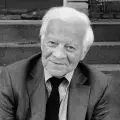There is a recurrent thought, a fantasy perhaps, that the goal of life is to achieve happiness. Who among us does not long to stand down from the ramparts, to arrive some distant day at a blissful bower and rest easy, abide awhile, and be permanently happy? Yet our own psyche apparently has another thought, a contrary agenda, which frequently derails our fantasy and pulls us under into an emotional swampland. Our peaceful respites are ephemeral and can neither be willed into being nor perpetuated by hope, right conduct, or right religion. Rather, it seems, our own nature intends that we spend a good part of our journey in such dismal dwellings; yet these dread places paradoxically provide many of the most meaningful moments of our journey. Indeed, it is in such swamplands as loss, betrayal, and depression where the soul is fashioned and forged, character is tested, and values enlarged beyond the ego’s limited purview by the soul’s agenda.
This course-discussion will select many swamplands, such as depression, addiction, anxiety, identify the developmental tasks each invites and consider the therapeutic strategies most effective. At the end of his introductory lectures on psychoanalysis, Freud suggested that the therapeutic task is to move from neurotic miseries to the normal miseries of life. Jung added that soul-making is the only resolution of suffering which honors spiritual integrity of the individual, and moves from victimage to a collaborative participation in the rigor of life. We will see how when we engage in this process, we may be brought to the paradox that the goal of life is not happiness but meaning, such meaning that deepens and dignifies our common condition.



